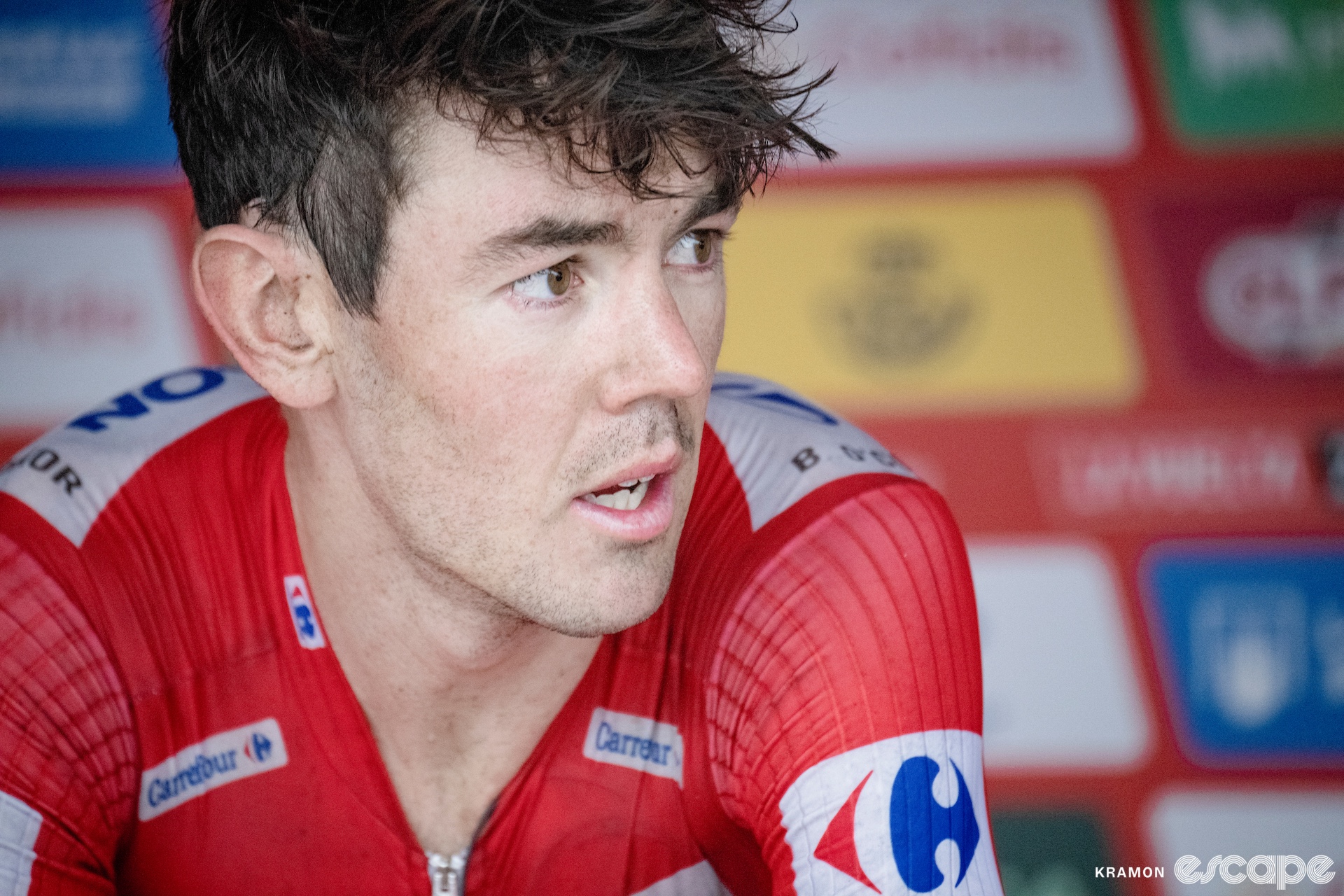Did we do a good job with this story?


The West Australian reflects on finishing second at the Vuelta, the big win on stage 6 that set up his podium finish, and much more besides.
O'Connor in the red jersey of Vuelta leader after stage 17.